#Gromyko
Text
My mom whispering to me (an atheist) when we have Christmas dinner with my dad’s side of the family:

7 notes
·
View notes
Text
jfk and gromyko meeting vs rfk and dobrynin meeting who wins in terms of silliness..
2 notes
·
View notes
Text


Vera! Best mom :)
#oc#originalcharacter#mewmewkittenocs#originalstory#cosmic representations#cosmic representations story#vera gromyko#star
0 notes
Link
Senator Ted Cruz says that Michelle Obama may step in to the role of unifier for the sad, sad Democratic Party. She has certainly picked up the pace of pocket-lining, in the traditional Clinton Obama way. If Cruz can make a prediction, I hope I can be forgiven for this one. I think Hillary Clinton awaits her second chance – and like CIA mouthpiece David Ignatius, she doesn’t want Kamala to be the first woman king. I mentioned this to a likeminded friend, who was horrified – we agreed, everyone we know hates Hillary. But a Hillary, with her new … Continue reading →
0 notes
Text

tag yourselves
1 note
·
View note
Text
Brown states:
The secret police of both groups of powers, we thought, might be allowed, before the meeting, to install their listening apparatus in the large hotel where it was to take place. They might perhaps also make use of that opportunity to get to know one another a little. An answer from Moscow was received in a surprisingly short time. We were invited to the New York quarters of the Soviet delegation to the United Nations, on Park Avenue, in order to hear it. Our hearts beat high with hope. But when we arrived we found Gromyko in quite a different mood from that of our first meeting. He confined himself to reading out to us – and to the microphones which were probably concealed in the room – an extremely formal rejection of our proposal.
"Brighter than a Thousand Suns: A Personal History of the Atomic Scientists" - Robert Jungk, translated by James Cleugh
#book quotes#brighter than a thousand suns#robert jungk#james cleugh#nonfiction#harrison brown#andrey gromyko#secret police#listening in#moscow#new york#soviet#united nations#park avenue#hope#rejection#microphone
0 notes
Text
Safer On Board
From The Pittsburgh Press on this day in 1949:
In Danger Unless We Act, Briton Says –
Pickets Hurl Tomato As Bevin Arrives in U.S. to Sign Pact
Foes of Anti-Semitism Say Name of Foreign Secretary Should Be Spelled ‘S.O.B.’
NEW YORK, March 30 (UP) – British Foreign Secretary Ernest Bevin, arriving today in this country to sign the North Atlantic Pact, was the target of a tomato.
It was hurled…

View On WordPress
0 notes
Text

"Red Lands of Polotchina" by Viktor Gromyko (1970)
Polotchina = area around the city of Polotsk, Belarus
229 notes
·
View notes
Text
Labour VI
꧁ ꧂
Labour Masterlist
꧁ ꧂
Charles Xavier x OC
꧁ ꧂
"The presence of us missiles in Turkey," The tv was on but Atara wasn't watching it she was too busy trying not to vomit. Atara was scared, she was scared of the outcome of what Shaw wants to do, she scared of having to fight her brother.
"represents an unprecedented threat to the people of the Soviet Union, warned Russian foreign minister Gromyko earlier today. But he was quick to insist the Russians would not be the first to initiate any military action.”
"But he was quick to insist the Russians would not be the first to initiate any military action." The TV droned on, slowly fading into the background as Shaw started to speak.
"Yeah,” Shaw and Frost turn to each other. “we'll fix that as soon as we get to Russia."
“Unless the CIA find us first.” Frost was a little worried. “I'll take care of them, too.”
“If that telepath gets inside your head, he won't be as much fun as I am.” Frost smiled.
“Already in hand, my love.” Shaw pushed off the couch and walked to a crate on his desk, he unlatched it and grab the object inside.
“The Russians,” He put on the object, a silver helmet. “made me this.” He turned around. “So, what am I thinking?” Frost sighed and focused on trying to read him.
Her focus stopped. “I don't know.” Shaw chuckled. “I was thinking that you are the most exquisite thing I have ever seen in my life.” Frost smiles wide.
“And that this needs ice.” He taps his glass, and Frost’s smiled weakens before disappearing.
“Fetch me some.” She reached for the glass, and he handed it over. “There's a good girl.” After Frost left his attention turned to Atara.
“Come here.” He ordered. Atara was frozen for a second before obeying, walking over she stopped in front of Shaw. She didn’t look at him, opting to look at his chest.
Shaw used his thumb and index finger to lift Atara’s chin to make her look him in the eyes. He had a sadistic smirk. He pulled her forwards into a kiss, his other hand slid from her hip down to her ass, squeezing it slightly. He pulled back.
“My beautiful diadem.” His helmet touched her forehead as he leaned his forehead to hers. For a moment it felt as if he really loved her, and she loved him. But she knew it wasn’t true, he wasn’t capable of love.
Atara smiled at him looking through her lashes into his eyes. “You’ll stay by my side right? I can trust you won’t betray me for your brother, right?” That question had her thinking.
“Yes.” Her voice was soft but he heard her.
“Good. Now run along.” Atara turned and left quickly joining Riptide and Azazel in the control room.
꧁ ꧂
Erik broke into an office; he found a file with Shaw’s name on it. Taking it, he put it in his wooden briefcase. He walked back through the entrance before he was stopped by Charles.
“From what I know about you, I'm surprised you've managed to stay this long.” Charles walked out from his little hiding spot by the door. Erik stopped at turned.
“What do you know about me?” He sounded tense.
“Everything.”
“Then you know to stay out of my head.” Then Erik turned and continued walking off with Charles following.
“I'm sorry, Erik, but I've seen what Shaw did to you.” Both Erik and Charles stopped walking. “I've felt your agony. I can help you.” Erik scoffed smirking the turned to Charles again.
“I don't need your help.” He said shaking his head slightly.
“Don't kid yourself; You needed my help last night.
It's not just me you're walking away from.” Charles took a step forward. “Here you have the chance to be part of something much bigger than yourself.
I won't stop you leaving. I could.” He paused. “But I won't.” Charles started to walk inside.
“Shaw has got friends. You could do with some.” Erik turned away but stayed in his place.
꧁ ꧂
Frost walked around the sub. "There's nothing on radar?"
"Nothing." Azazel confirmed. Atara sat at a bench inside the white sub, Riptide was right next to her, he was watching some of the control screens, but he didn't really have a specific job in the moment.
"Sonar?" Frost asked. "Nyet." Azazel's tail whipped in the air.
"Then we have a problem." Frost turned to leave, walking through the empty office she pressed a button in a box on the desk. One of the white walls cracked open to reveal a blue lighted room covered in mirrors.
"Beautiful, isn't it?” Shaw waved his hand to the object in the middle. “The reason we exist. We are the children of the atom, my love." Shaw turned to Frost.
"We have a situation. The telepath, I shouldn't be able to feel him at this distance. It's like his reach is," She paused to think of the right word. "amplified.” Shaw thought for a second. “They're recruiting."
"You and Diadem go on to Russia. I'll handle them." He smiled.
꧁ ꧂
It was a long, silent helicopter ride just Frost and Atara. Luckily enough it was over sooner than she thought it would be.
The helicopter lands and the two of you step out, the both of you have different colored coverups, over a dress. Atara’s was a dark brown, greyish color, Frost’s was all white.
“Shaw sends his apologies but he's indisposed. He asked us to come in his place.” Frost was the one who did the talking, Atara had her arms cross slightly behind Frost.
“And between you and I, honey, I'm a lot better company.” Frost spoke in a lower voice, that was her mission, seduce him into listening.
“Please, come in.”
꧁ ꧂
“Your health.” He clinked his glass against Frost’s, Atara stood against the wall in the next to a window.
“So, you must be busy planning your next move.
What with the Americans refusing to remove their missiles from Turkey.”
“You know I can't talk about those things, Miss Frost.”
“Emma.” She stood up, unclamping the belt overtop the dress. “And don't worry. You don't have to say a word.” She slowly unzipped the dress, Grossed out she decided to move her attention outside where she saw Erik grabbing some guards with barbed wire.
She took in a tensed breath will Frost let the general go at her illusion on the bed while she sat on the couch watching.
“Pathetic.” She bit into a cracker. Suddenly Erik and Charles burst through the door. The general was saying stuff in Russian, rubbing the air.
“Nice trick.” Frost let the illusion go. The general was shocked at the sudden appearance of the two men in the room.
“Who are you?” He turned to Frost who awkwardly smiled. He reached for his gun.
“Go to sleep.” The general fell back unconscious. Frost transformed into her diamond form. Charles tried to read her mind but winced in pain.
“You can stop trying to read my mind, sugar. You're never going to get anything from me while I'm like this.” Frost got ready to run, when she got up onto the table The two men pushed her back against the bed frame. Erik bent the metal bed frame around her wrists.
“So, then, you can just tell us.” Frost struggled against the restraints. “Where is Shaw?” Frost stayed silent and Erik wrapped a piece of metal around her neck.
Atara stepped forwards. “Stop.” Both the men turned to her forgetting she was there. “I can get her out of that form.” Charles contemplated it for a second.
“Go ahead.” Atara focused on Frost’s skin, she forcefully transformed her back to her regular appearance before falling to her knees in pain. Holding one hand against her head.
“All yours. She won't be shifting into diamond form again.” Charles knelt down and pressed his fingers to his head.
When Charles’ focus seems to come back Frost spoke. “Beautiful, isn't it?” Charles turned to Erik.
“This is worse than we previously imagined.” Turning back to Frost he spoke again. “We're taking you with us. CIA will want to question you themselves.”
“Oh, I doubt it.” Frost squirmed in her place. “They have bigger things to worry about right now.” Charles pressed a finger to Frost’s head. “Sleep.”
Frost’s body went limp and her head fell forwards. The two men turned to Atara. “Now what to do with you.”
꧁ ꧂
1428 words
12 notes
·
View notes
Text
Russian archival records obtained for this book show that [Joseph] Stalin colluded with his favorited U.S. candidate in 1948, Henry Wallace, [Franklin D.] Roosevelt’s Soviet-friendly wartime Vice President.
The nature of Wallace’s relationship with the Kremlin has long been a subject of speculation. Soviet intelligence is known to have unimaginatively code-named the Vice President CAPTAIN’S DEPUTY during the war. But no evidence has ever emerged that Wallace was recruited as a Soviet agent. He was, however, we can now discern, a Soviet tool. He sincerely believed that “peaceful coexistence” between the Soviet Union and the United States not only could be achieved, but was essential for world peace. All the while, he looked away from (and naively followed Soviet propaganda denying) the existence of Stalin’s mass forced labor and terror programs. According to [President Harry S.] Truman’s counsel Clark Clifford: “It was never clear to me how aware he [Wallace] was of the uses to which the Communist Party was putting him, but whether he knew it or not, he was following the communist line, serving communist ends, and betraying those Americans who supported him as a serious alternative to the two main candidates [in 1948].” Wallace’s naivete about Soviet communism turned him into an asset for Stalin, if not a recruited Soviet agent.
Wallace decided to run in the 1948 U.S. election as the Progressive Party nominee. In April and May that year, he secretly liaised with Stalin about public policies that would be advantageous for the Soviet Union, coordinating his public statements with the dictator. Wallace secretly met with the youthful Soviet ambassador to the UN in New York, Andrei Gromyko, who dispatched the candidate’s messages to the Soviet foreign minister, [Vyacheslav] Molotov, and to Stalin himself. In his memoirs, Gromyko admitted to meeting Wallace, but downplayed the meeting’s significance, suggesting that after talking with him he considered that Wallace had lost contact with the pulse of American life. Archival documents in Moscow reveal that in fact Stalin took Wallace’s position and candidacy seriously, approving his public positions, and answering questions that the former Vice President put to him, which Stalin annotated in his distinctive pencil. Their alignment produced a published open letter from Wallace to Stalin, vetted by the Soviet leader in advance, to which Stalin then publicly replied, all as agreed between the two men.
Wallace’s Presidential election bid in November 1948 dismally failed; he ended up getting barely 2 percent of the vote, while Truman, to his and the nation’s surprise, won a second term. He defeated New York Governor Thomas E. Dewey in one of the greatest upsets in U.S. Presidential history. Ironically, the staff of Wallace’s failed 1948 campaign included none other than the Soviet atom spy Ted Hall. Following his unsuccessful White House run, Wallace had a crisis of faith in his pro-Stalinism. This may have been caused by his realization that Stalin had used and discarded him after the election. Stalin had gotten what he wanted from Wallace. In 1952, Wallace published an article, “Where I Was Wrong,” describing “Russian Communism” as “utterly evil.” The Kremlin and its intelligence services nevertheless learned an important strategic lesson for later in the Cold War: that it could use the freedoms inherent within American electoral campaigns to influence candidates favorable to the Soviet Union.
-- From Spies: The Epic Intelligence War Between East and West by Calder Walton, Simon & Schuster, 2023 (BOOK | KINDLE | AUDIO)
#History#Henry A. Wallace#Vice President Wallace#Soviet Union#Cold War#Cold War History#Joseph Stalin#Stalin#Stalinism#Communism#Soviet History#Espionage#1948 Election#Harry S. Truman#President Truman#Thomas E. Dewey#FDR#Franklin D. Roosevelt#President Roosevelt#Roosevelt Administration#Politics#Political History#Russia#Russian History#Soviet Communism#Spies: The Epic Intelligence War Between East and West#Spies#Calder Walton#Simon and Schuster#Simon & Schuster
26 notes
·
View notes
Text
~translated from Greek:
David who became Goliath on May 13, 2023
On the occasion of the 75th anniversary of the establishment of the State of Israel By Petros Papakonstantinou
Today marks 75 years since David Ben-Gurion proclaimed the establishment of the State of Israel on the lands of historic Palestine.
At the time, his generals estimated that the chances of the Jewish state escaping infant mortality in the inevitable war
with the allied Arab states were 50-50%.
Eventually, Israel prevailed in this conflict, naturalized by the Arabs as the "Nakba" (Catastrophe), and even more so in the next, the "Six-Day War" of 1967, which made it absolute sovereign from the Sinai Peninsula to the Jordan.
The countdown had begun on November 29, 1947, when the General Assembly of the newly established UN decided to divide Palestine,
which until then had British protectorate status (55% Jewish state, 43% Palestinian state, Jerusalem international city).
In the aftermath of the Holocaust, Jews' claim to a national home was politically and morally powerful, even if Arabs were being asked to pay for the crimes of Europeans.
Any thought of creating a Jewish state in Europe, where the largest Jewish populations lived, seemed completely utopian.
The Americans under Truman supported the sharing, calculating that they would ostracize their British allies and competitors
from an oil-rich geostrategic region of the world.
Some enormously Jewish intellectuals, such as Albert Einstein and Hannah Arendt, had their objections, preferring a transnational (Jewish-Arab) state in historic Palestine, but their idealistic internationalism had no luck against the inexorable forces of real history.
Decisive to the establishment of the Israeli state was the support of the USSR under Joseph Stalin.
At the crucial UN General Assembly, then-ambassador and later Soviet Foreign Minister Andrei Gromyko said Moscow preferred a bi-national state, but if this was not accepted by both sides (as it knew would happen), it would support sharing.
Stalin recognized Israel on May 17, 1948, just three days after his proclamation.
In the ensuing war with the Arabs, much of the Jewish weapons came from Czechoslovakia.
By the end of 1953 the Soviet embassy was in Jerusalem, which went beyond even UN resolutions.
The motives of Soviet leaders are easy to understand if one is placed in the context of that historical conjuncture.
The Jewish-socialist Bund Party was active in Tsarist Russia even before the SDRP of Plekhanov, Lenin, and Martov was founded,
and many influential members of the Bolsheviks and Mensheviks (as well as the German and Austrian Social Democrats) were of Jewish origin.
Socialist or socialist tendencies were strong in the young Zionist movement, exemplified by the famous kibbutz, peasant communities of collective ownership.
The religious-minded European right had spearheaded the pogroms against the Jews, while it was the Red Army that had liberated Auschwitz.
Given this, Moscow expected the young state of Israel to be rather friendly to it, more than the reactionary Arab monarchies
tilted towards America, as suggested by the historic Roosevelt-Ibn Saud "deal" on the deck of the cruiser Quincy, Suez.
These calculations soon proved short-sighted. The Arab world was shaken by the wave of anti-colonial, anti-imperialist movements,
typically represented by the Free Officers Movement in Egypt and the Baathists in Syria and Iraq.
On the contrary, Israel has become a lobster state, an outpost of the West and, above all, of the Americans in the heart of the Arab world
and the world's number one oil-producing region.
The myths of David fighting the Goliaths and the "only democracy in the Middle East" collide head-on with reality.
The supposed David receives $4 billion in free military aid each year from the U.S. and is confident, in every conflict,
that the U.S. Cavalry will come to his rescue if they find it dark, as they did in the 1973 Yom Kippur War.
A country without declared borders, without a constitution, with a democracy for Jews, but not for vassals of Arab-Israelis and Palestinians – as much democracy as South Africa's apartheid regime was for whites and only for whites.
Meanwhile, even the leaders of the modern far right, like Le Pen or Meloni, have only good words for Israel, since the place of antisemitism has long been taken by Islamophobia, an ideological corollary of imperialist interventions abroad and the oppression of migrant workers at home.
We have been talking for years about the "trinity of the impossible": that the state of Israel can be Jewish, it can be democratic and it can occupy the Palestinian territories (West Bank, East Jerusalem, Gaza), but it cannot do all three together.
Today we are living in the hour of tragic confirmation.
With the most reactionary government in its history, where religious extremists, openly preachers of ethnic cleansing against Palestinians
hold key ministries, Israel is rocked by huge rallies against the country's transformation into an authoritarian theocracy.
At the same time, a new generation of Palestinians, living in poverty and oppression, frustrated by ageing, incompetent and discredited
leaderships, is taking resistance to the occupation into their own hands in new forms and organizations, like the "Lion's Nest" in the West Bank, with the aroma of a third intifada.
Having ostracized the two-state solution beyond the horizon line, their Israeli and American patrons are pushing the Palestinian people to go the long step and reorient themselves towards an anti-apartheid struggle for equal rights throughout historic Palestine.
The sequel is awaited with interest.
~Petros Papakonstantinou
PRIN newspaper, 13 May 2023~
#Translated from Greek#Petros Papakonstantinou#The 75th anniversary of the establishment of the State of Israel
7 notes
·
View notes
Text

Mikhail Konstantinovich (1833-1902) "Rest in the Park." 1880s - 1890s.
Oil on canvas
In the lower right corner of the author's signature: "M.K.Klodt."
Origin: from the collection of A.A. Gromyko.
Andrey Andreyevich Gromyko (1909-1989) - Soviet diplomat and statesman, in 1957-1985 - Minister of Foreign Affairs of the USSR, in 1985-1988 - Chairman of the Presidium of the Supreme Soviet of the USSR. Doctor of Economic Sciences (1956).
"Tipped" soil, brown and green wipes, a set of pigments and general color, the manner of depicting branches and leaves of trees, the nature of finishing zigzag strokes and, in general, the texture of painting are very characteristic of the artist's picturesque manner.
The plot itself with the genre motif of female figures sitting at the table is unusual for Klodt, who liked to repeat and vary several variants of the same plot. These are the shores of the Gulf of Finland, landscapes with cows, birch alleys and groves, however, the artist's interest in this kind of landscape and genre composition cannot be excluded.
Painter, graphic artist. Born in a family of hereditary artists, the son of an artillery colonel, the famous xylographer K.K. Clodt, nephew of the sculptor P.K. Klodt, cousin of the artist M.P. Clodt. In 1851 he entered the IAH, studied in the class of landscape painting with M.N. and S.M. Sparrows. He was graduated from the Academy with the title of class artist of the 1st degree and the right of a retired trip abroad for a period of three years. In 1862 for the paintings "Valley of the Aa River in Livonia" and "Night in Normandy. Fishermen by the fire" was awarded the title of academician. In 1864, he was awarded the title of professor for the painting "View in the Orel Governorate" presented at the academic exhibition. In 1870 he became one of the founders of TPHV, in 1880 he left the Partnership, but continued to exhibit his works at its exhibitions. In 1871-1872, together with A.P. Bogolyubov contributed to the establishment and opening of a landscape class in IAH. Since 1871 he worked as a full-time professor-teacher of the class, from 1872 - a full-time professor-teacher of the 2nd degree, from 1873 he led the landscape class. Works by M.K. Klodt are in many museum collections, including the State Tretement Hall, the State Russian Museum, the National Art Museum of the Republic of Belarus in Minsk.
Litfund
3 notes
·
View notes
Text
"Absent Gorbachev’s drastic reform agenda, the Soviet system most likely could have staggered along indefinitely. Instead, he unleashed massive pressures from below that brought it down.
Even with the economy and finances in steep decline, the Soviet Union still could hide its weak condition behind a respectable Potemkin facade and negotiate with the United States from a position of relative parity. After 1988, this situation drastically changed: Gorbachev’s decision to launch radical political and state reforms, coupled with the removal of the party apparatus from economic life, created a most severe crisis of the state and produced centrifugal political forces that spun out of control within Soviet society. All this was tantamount to revolution, was visible to the world, and engulfed the Soviet leadership. These policies essentially destroyed the Soviet capacity to act like a superpower on the international arena. The Soviet Union was left in no position to bail out its allies or to present itself as an equal partner to the United States in negotiations.[253]
There are few other examples in history of a leader in charge of a huge ailing state who willingly risked the geopolitical position of a great power and the very foundations of his political power for the sake of a moral global project.[254]
By the spring of 1989, it became obvious even to Gorbachev’s closest assistants that the radical reappraisal of Soviet ideology and history, initiated from above, had triggered a political deluge from below.[255]
And Gorbachev himself was constitutionally incapable or unwilling to resort to force to preserve the system when it became clear it would otherwise collapse.
An additional feature of Gorbachev’s personality that perplexed contemporaries and witnesses was his deep aversion to the use of force. To be sure, skepticism about military force was widely shared among ‘‘new thinkers.’’ It can also be regarded as a generational phenomenon that originated from the impact of World War II and was reinforced by the pacifist trends during the 1960s. Former Soviet foreign minister Andrei Gromyko, for example, privately called Gorbachev and his advisers ‘‘the Martians,’’ for their ignorance of the laws of power politics. ‘‘I wonder how puzzled must be the US and other NATO countries,’’ he confessed to his son. ‘‘It is a mystery for them why Gorbachev and his friends in the Politburo cannot comprehend how to use force and pressure for defending their state interests.’’ Gorbachev personified the reluctance to use force. Indeed, for him it was less a lesson from experience than a fundamental part of his character. The principle of nonviolence was a sincere belief for Gorbachev — not merely the foundation of his domestic and foreign policies but one of his personal codes. His colleagues and assistants confirm that ‘‘the avoidance of bloodshed was a constant concern of Gorbachev’’ and that ‘‘for Gorbachev an unwillingness to shed blood was not only a criterion but the condition of his involvement in politics.’’ Gorbachev, they observe, ‘‘by character was a man incapable not only of using dictatorial measures, but even of resorting to hard-line administrative means.’’ The critics claim that Gorbachev ‘‘had no guts for blood,’’ even when it was dictated by state interests.[256]
As a result, Gorbachev simply let the communist regimes in Eastern Europe slip away, with no intention of intervening.[257] Without Gorbachev and his personal idiosyncrasies, “the rapid disintegration of the Soviet Union itself would not have occurred. At each stage of the Soviet endgame, Gorbachev made choices that destabilized the USSR and sapped its strength to act coherently as a superpower.”[258]
-Kevin Carson, "The Undeclared Condominium: The USSR As Partner in a Conservative World Order" (2023)
...
unmachiavelly based
5 notes
·
View notes
Text

#Nixon50 #OTD 9/28/1973 President Nixon met to review United States-Soviet relations with Andrei A. Gromyko, Minister of Foreign Affairs of the U.S.S.R., Anatoly F. Dobrynin, Ambassador from the U.S.S.R. to the United States, Secretary of State Henry Kissinger, and others. (Image: WHPO-E1548-09)
4 notes
·
View notes
Text


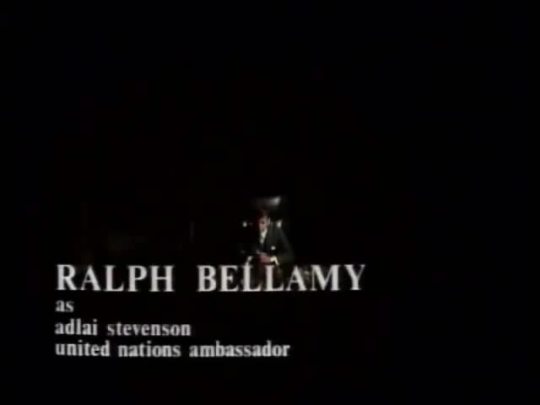



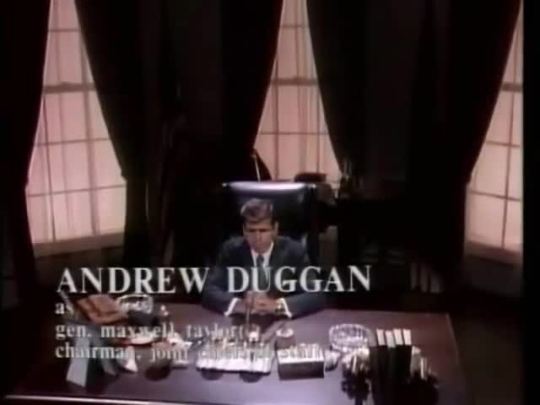
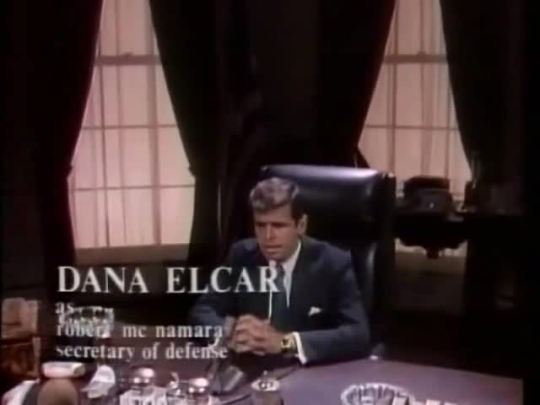
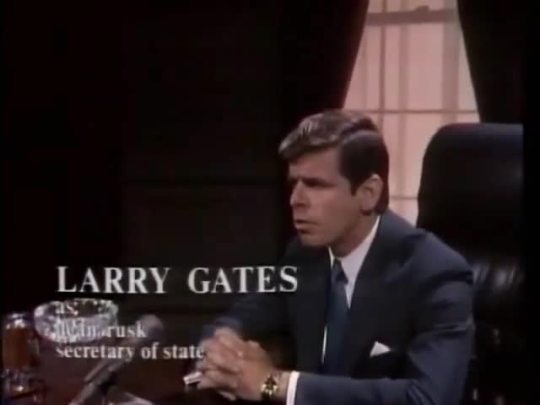


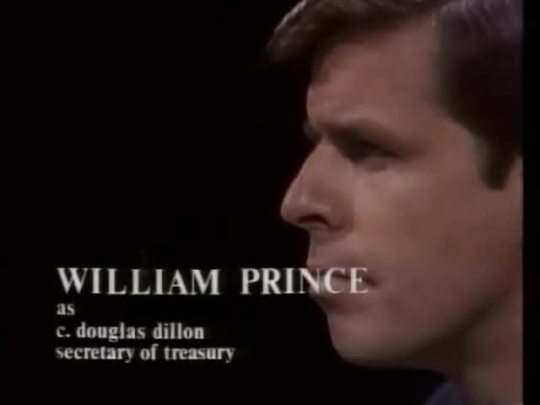

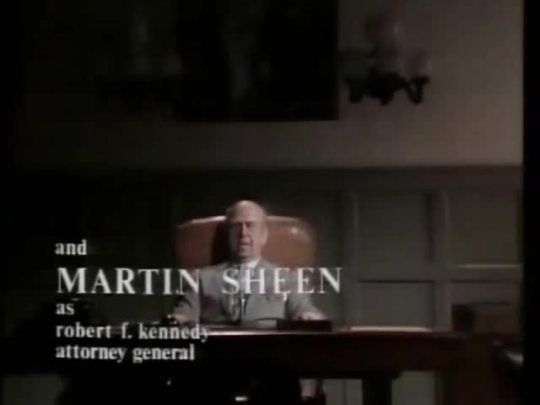
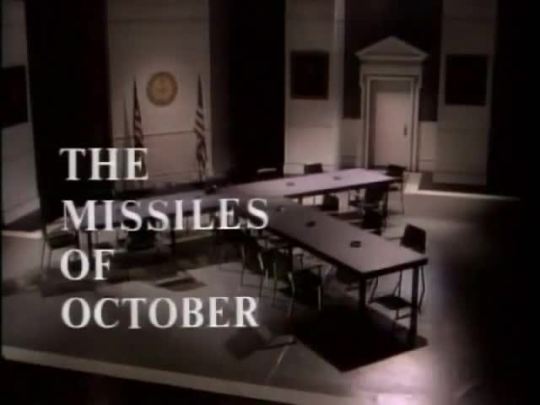
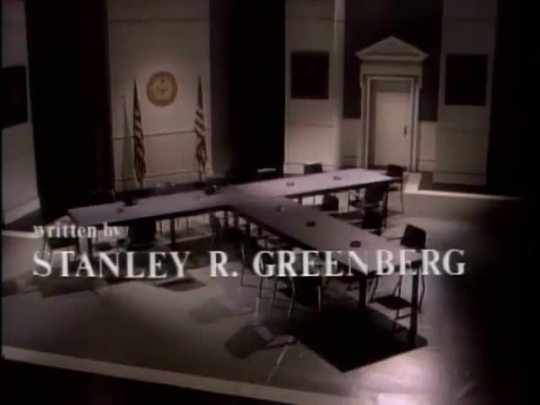
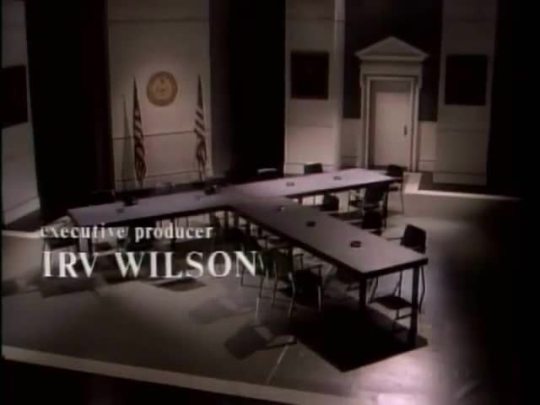
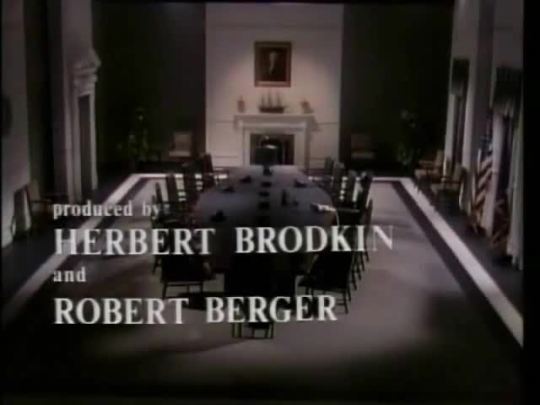

The Missiles of October - ABC - December 18, 1974
Docudrama
Running Time: 150 minutes
Stars:
Ralph Bellamy as Adlai Stevenson
Howard da Silva as Nikita Khrushchev
John Dehner as Dean Acheson
William Devane as John F. Kennedy
Andrew Duggan as General Maxwell Taylor
Dana Elcar as Robert McNamara
Larry Gates as Dean Rusk
James Olson as McGeorge Bundy
Nehemiah Persoff as Andrei Gromyko
William Prince as C. Douglas Dillon
John Randolph as George Ball
Martin Sheen as Robert F. Kennedy
Michael Lerner as Pierre Salinger
Clifford David as Theodore Sorensen
Albert Paulsen as Anatoly Dobrynin
Keene Curtis as John McCone,
Robert P. Lieb as Curtis LeMay
#The Missiles of October#TV#ABC#Docudrama#1974#Ralph Bellamy#Howard da Silva#John Dehner#William Devane#Andrew Duggan#Dana Elcar#Larry Gates#James Olson#Nehemiah APersoff#William Prince#John Randolph#Martin Sheen
6 notes
·
View notes
Text
get to know me better tag meme
@idrilka, thanks for tagging me ♡
rules: answer all the questions, then tag 9 people you want to get to know better!
three ships: SEONHWI (my country: the new age), wangxian (mdzs), aaand i cant remember anything else at the moment, even wangxian feels a bit cloudyXD harry/drako in adult post-canon-slice-of-life AUs was always my comfort ship though.
first ship: oooh boy let me tell you a storyXDD it’s kind of irl RPF BUT (long story ahead!) -
here it is: i was ~15, and i was in a school hiking club, and we went on a 2 weeks mountain hike in two squads - older kids (last year of school) and younglings (like me, second to last year of school), supervised by our geography teacher. It was an amazing experience, we were responsible for everything but trail navigating and pace.
And in the older squad (those kids were like only a year older than us but the gap felt insurmountable, they were Wise Adults (TM)) there were two leaders, two best friends, one tall, handsome and like aristocratic (but pretty outgoing) and the other one an inch shorter, with longer hair, always laughing, and he had The Guitar (TM) and was not afraid to use it. All the girls were either infatuated with one or the otherXD
So, those two cute guys, always tousling, sharing a tent (with three more boys, ‘cause limited tent amount, tents are f* heavy), laughing, constantly bickering with lots and lots of innuendos, ‘cause you know, teenagers))
And one evening almost at the end of the hike we were sitting around the campfire, and The Laughing One with The Guitar was singing the most heartfelt song about a breakup , which coinsidentally had a name of his friend in it, while looking straight at said friend with laughter sparkling in his eyes,
and my little maiden heart went - OMG are they......... you know..................... ♡ ♡ ♡ ♡ ♡ ♡ ♡ ♡ ♡ ♡ ♡ ♡ ♡ ♡ ♡ ♡ ♡ ♡ ♡ ♡ ♡ ♡ ♡ ♡ ♡ ♡ ♡ ♡ ♡ ♡ ♡ ♡ ♡ ♡ ♡ ♡ ♡ ♡ ♡
(mind you, i live in a very homophobic country and it was as bad then as it is now, i knew in theory abt possibility of same-sex relationships only because i was a curious child who liked to read too much for her own good and i’ve found an uncensored version of greek mythology in my mom’s books on the topmost shelf; but it was like historical and not applicable to modern society in my mind, so those two guys might’ve been pretty intense to even put a thought abt that possibility irl in my head)))
* in retrospect, a lot of my fictional ships make so much sense nowXDD i’ve just imprinted on those two guys)))*
//and if we are talking fictional ships - the first one would be Abarai Renji/Kuchiki Byakuya (Bleach)))))
last song i listened to: Иду - Танцы Минус
last movie i watched: /last movie i watched that left an impression, i def watched smth else after but can’t recall what was that/ - Triangle of sadness. Don’t go for arthouse usually, that genre can be too pretentious or too revolting for the sake of revolting but this one was good..
currently reading: i mostly read fanfiction these days; if we mean a novel - then Thousand autumns (it’s on pause, i’m too into my current obsession)))); reread some of shorter stories by Olga Gromyko last weekend, needed comforting)))
currently watching: psyching myself to rewatch MCTNA, planning do dive into WDH’s & Yang Se-jong’s filmographies; planning on watching A league of noblemen (gifsets on tumblr look intriguing);
currently consuming: nothingTT_TT food needs to be prepared asap
currently craving: roasted tofu from that one cafe my friend dragged me to last month*////*
tagging (not obligatory! ♡) @gorgeousgalatea, @dadwife, @opticor, @rej11, @soleil-tiara, @smallwinterchild, @turtlewobbles, @maureen2musings, @notenoughgatorade
7 notes
·
View notes